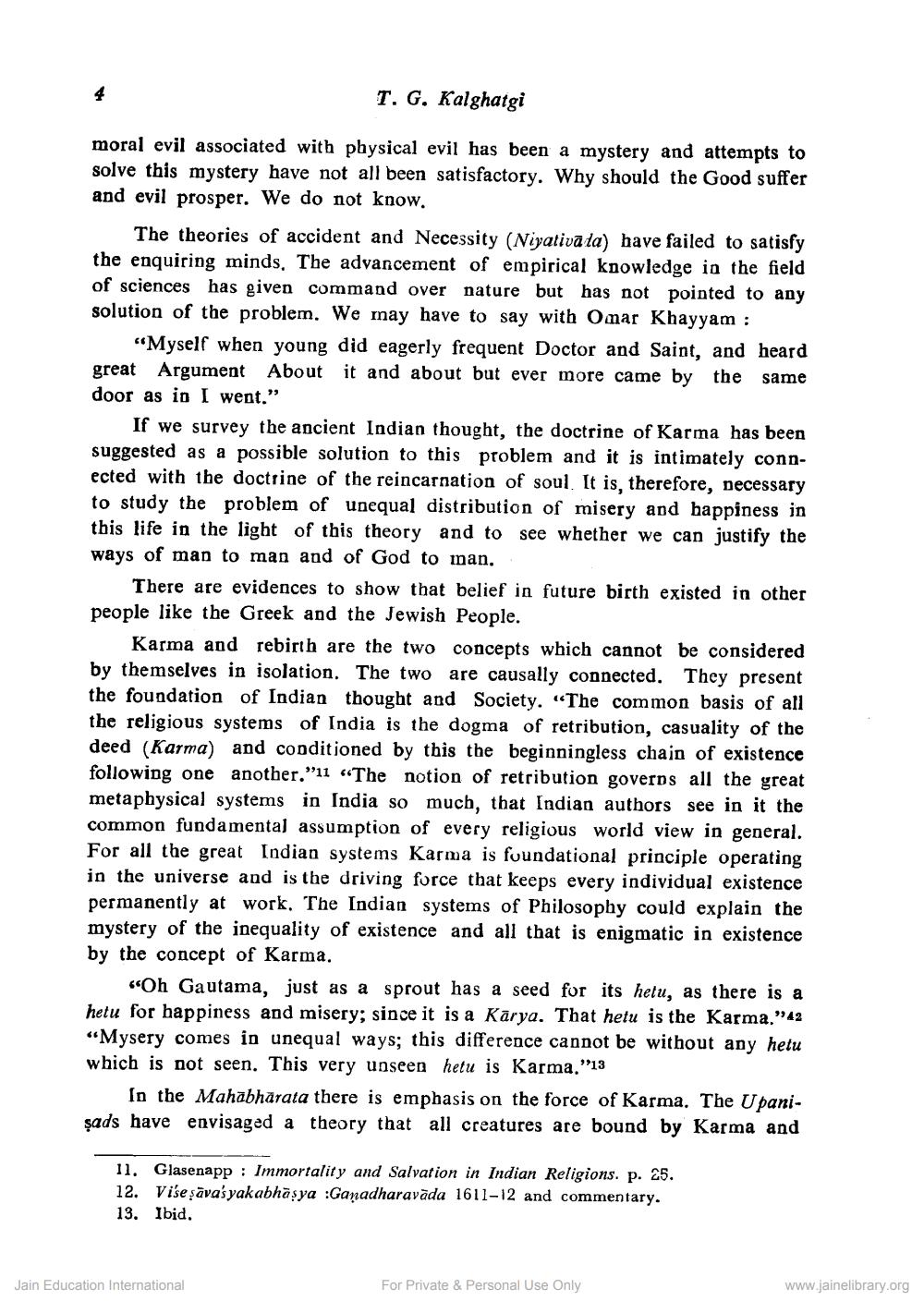Book Title: Karma and Rebirth Author(s): T G Kalghatgi Publisher: L D Indology Ahmedabad View full book textPage 9
________________ T. G. Kalghatgi moral evil associated with physical evil has been a mystery and attempts to solve this mystery have not all been satisfactory. Why should the Good suffer and evil prosper. We do not know. The theories of accident and Necessity (Niyativa da) have failed to satisfy the enquiring minds, The advancement of empirical knowledge in the field of sciences has given command over nature but has not pointed to any solution of the problem. We may have to say with Omar Khayyam : "Myself when young did eagerly frequent Doctor and Saint, and heard great Argument About it and about but ever more came by the same door as in I went." If we survey the ancient Indian thought, the doctrine of Karma has been suggested as a possible solution to this problem and it is intimately connected with the doctrine of the reincarnation of soul. It is, therefore, necessary to study the problem of unequal distribution of misery and happiness in this life in the light of this theory and to see whether we can justify the ways of man to man and of God to man. There are evidences to show that belief in future birth existed in other people like the Greek and the Jewish People. Karma and rebirth are the two concepts which cannot be considered by themselves in isolation. The two are causally connected. They present the foundation of Indian thought and Society. “The common basis of all the religious systems of India is the dogma of retribution, casuality of the deed (Karma) and conditioned by this the beginningless chain of existence following one another."11 “The notion of retribution governs all the great metaphysical systems in India so much, that Indian authors see in it the common fundamental assumption of every religious world view in general. For all the great Indian systems Karma is foundational principle operating in the universe and is the driving force that keeps every individual existence permanently at work. The Indian systems of Philosophy could explain the mystery of the inequality of existence and all that is enigmatic in existence by the concept of Karma. “Oh Gautama, just as a sprout has a seed for its hetu, as there is a hetu for happiness and misery; since it is a Kārya. That hetu is the Karma."42 “Mysery comes in unequal ways; this difference cannot be without any hetu which is not seen. This very unseen hetu is Karma."13 In the Mahabhārata there is emphasis on the force of Karma. The Upanişads have envisaged a theory that all creatures are bound by Karma and 11. Glasenapp : Immortality and Salvation in Indian Religions. p. 25. 12. Vise şāvas yakabhasya :Ganadharavāda 1611-12 and commentary. 13. Ibid. Jain Education International For Private & Personal Use Only www.jainelibrary.orgPage Navigation
1 ... 7 8 9 10 11 12 13 14 15 16 17 18 19 20 21 22 23 24 25 26 27 28 29 30 31 32 33 34 35 36 37 38 39 40 41 42 43 44 45 46 47 48 49 50 51 52 53 54 55 56 57 58 59 60 61 62 63 64 65 66 67 68 69 70 71 72 73 74 75 76 77 78 79 80 81 82
